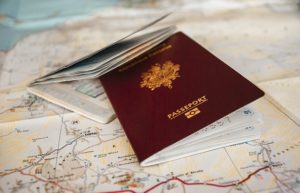
Alternative Evidence of Identity and Nationality for Any Types of Visa Applications
Irrespective of what type of visa application you intend to make, first of all, you’ll need to confirm your identity and nationality. The easiest way to do this is to produce your passport or an ID card. If you are a non-EEA national, then you’ll need to produce your valid biometric residence card.
However, there may be reasons why you cannot provide the required proof of identity and nationality in this form. Below I’ll explain what alternative evidence of identity and nationality you can produce with your application.
First Things First
First of all, you need to make sure that you fully explain your circumstances in a cover letter. The Home Office will accept alternative evidence in very limited circumstances. When you can show that you cannot provide the acceptable form of identity and nationality. You’ll need to prove that you cannot do so due to circumstances beyond your control. Alternatively, you’ll need to prove some other compelling practical or compassionate reasons.
Lost or Stolen
For example, if you cannot provide your original passport because you lost it or someone stole it, but you have a copy of this document, you may apply using a photocopy of the document. You’ll also need to submit the police report and a letter, explaining your circumstances. However, even if you do make an application without the original document, you still need to apply for your national passport as soon as possible. This will help you support your application with this original document as soon as you receive it.
Passport from a Country not Recognised by the UK
There are certain countries, which the UK Government does not recognise. For example, one of the countries, which is not recognised by the UK government is the Turkish Republic of Northern Cyprus. If a person from such a country makes an application, the Home Office caseworkers are instructed to accept your passport as evidence of their identity and nationality providing there are no indications to the contrary.
Unobtainable from National Authority
There may be situations where your passport has expired or has been permanently lost or stolen and there is no

functioning national government to issue a replacement.
There are also circumstances where there is a national authority to apply to for a document, but they have run out of documents.
In these circumstances, you need to provide as much information as possible. If you have made any applications for documentation you may have made to your national authority – you must include these details in the supporting letter too.
Document Exists but Cannot be Produced
This may apply to you if your passport is at another government department. For example, it was already submitted to the Home Office. In this case you just need to mention details of when it was submitted and to which department. You also need to provide details of any other evidence (for example a letter from that department confirming that they currently have your passport).
Quite often victim of trafficking and domestic violence are unable to produce their passports because they are held by the 3rd parties under circumstances beyond their control.
If you are a victim of trafficking, the Home Office is likely to accept your application. It is if you became the subject of a positive conclusive grounds decision, which a competent authority under the National Referral Mechanism made for you. You can read more about the National Referral Mechanism HERE.
This article lists a number of organisations where you can get immediate free help if you became a victim of trafficking.
As far as the victims of domestic violence are concerned, you will need to support your claim by producing evidence from a third party, such as the police or social services.
Alternative Evidence of Identity and Nationality for Any Types of Visa Applications
Children under the Age of 18 in Local Authority Care

There may be circumstances where it will not be in the best interests of the child for the local authority to obtain the required document on their behalf. For example where doing so may risk the child. Also there may be significant practical barriers to obtaining the required document. For example where the national authority requires the consent of both parents. However, the parents are not in the UK or they don’t want to help.
In these circumstances, a competent local representative should write a detailed letter explaining the child’s circumstances.
What Document Can You Submit Instead
Any official document, which will help you shed the light on your identity and nationality.
Here is the list, which is non-exhaustive:
-
when the Home Office alraedy issued these documents before. For example, for emergency travel purposes. It is provided that there is no evidence that you confirmed your identity or nationality in error or fraudulently
-
an expired passport or other required document, bearing your name and photograph
-
an official document issued by the authorities of your country of origin. And this document confirms your identity and nationality. This may include birth and marriage certificates, driving licence, tax / social security statement, national service document, or emergency travel document or similar.
-
an official document issued by the UK authorities which confirms your identity and, if possible, nationality. This can include a UK driving licence, National Insurance number card, or tax or pension statement.
-
an official document issued by the authorities of an EU Member State. And this document confirms your identity and nationality, including a document confirming permanent residence in that state or registration as the family member of an EU citizen exercising Treaty rights in that state
-
your biometrics (facial photograph and, in the case of a non-EEA citizen, fingerprints) which match an existing government record confirming your identity and nationality.
The Home Office may invite you to attend an interview.
They may want to assess your ties to your claimed country of origin. They may check your knowledge of its geography, culture and language. Such an interview can be in person, by telephone, by videolink or over the internet.
Irrespective of the circumstances under which you are unable to submit your original passport or identity card or a valid biometric residence card, you need to make sure that you provide as much information as you possibly can with your application.
Further Help
And finally, if you are thinking of submitting a visa application, you will significantly increase your chances for success by understanding the rules and the process of your visa application. I, therefore, created a number of online courses to help you do exactly that. Knowledge will give you confidence and may help avoid refusal. For more information about the courses CLICK HERE.
